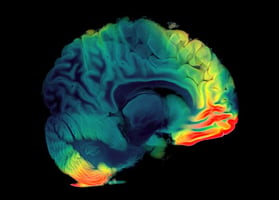Adolescent Depression May Be Predicted by Irritability, Anxiety, and Adversity
 |
The results, published online in JAMA Psychiatry, suggest that prevention and early intervention strategies may need to not only target clinical features in high-risk children but also incorporate public health and community strategies to help overcome social risks, especially poverty and psychosocial adversity.
The researchers conducted a four-year longitudinal study (April 2007 to March 2011) of offspring of depressed parents in the general community. The participants included 337 families in whom the index parent (315 mothers and 22 fathers) had experienced at least two episodes of MDD and among whom there was a biologically related child in the age range of 9 to 17 years living with the index parent at baseline.
The severity of parental MDD and familial loading for MDD in other family members were used to index the degree of offspring familial risk. Standardized questionnaires and scales were used to assess mood, anxiety, fear, irritability, and disruptive behavior among the youth at baseline. A measure of psychosocial adversity was derived by asking participants about stressful life events occurring within the past 12 months. Sample items included the death of a close friend, serious illness, being bullied, and increased quarreling between parents. Furthermore, low parent-reported household income was considered a measure of economic disadvantage and was defined as a gross income of £20,000 ($24,368) or less.
Twenty adolescents (6 males and 14 females) had new-onset MDD, with a mean age at onset of 14.4 years. Irritability and fear and/or anxiety were significant independent clinical antecedents of new adolescent-onset MDD. All the measured familial/genetic and social risk indicators directly influenced risk for new-onset MDD.
“Family-based programs may be indicated in children at high familial risk of depression because parental depression is associated with social adversity (poverty and stress exposure) and moderates the effectiveness of preventive programs focusing on the child,” the authors wrote.
For related information, see the Psychiatric News column “‘Typical or Troubled’: Early Intervention Program With Proven Effectiveness,” by then APA President Renée Binder, M.D.
(Image: iStock/fstop123)




